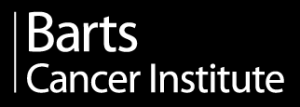September 19
2013
Biodesign Auditorium
727 E. Tyler St. Tempe
AZ 85287
Cancer is the second leading cause of death in the US exceeded only by cardiovascular diseases. About 1.6 million people will be diagnosed with cancer (excluding non-melanoma skin cancers) and 580,000 people will die of the disease in 2013. A significant number of cancer deaths can be prevented by controlling smoking behaviors, alcohol consumption and exposure to certain viruses. Nevertheless cancer cannot be eradicated like smallpox or polio because cancers can occur spontaneously, i.e., there may be no identifiable causes. Spontaneity of disease is a consequence of disease complexity. In the world of classical determinism everything happens for a reason and events observed now are a consequence of some earlier events or processes. Complexity makes no claim to a deterministic world. The indeterminacy of complex systems forces us to re-think what causality means. Causal factors are not easily identifiable because of the high spontaneous incidence of disease, and cancers cannot be clinically distinguished by their cause or by carcinogen dose. Furthermore, causation is spatially and temporally uncoupled from clinical disease. The implications for public-health policy are considerable because carcinogens are regulated to very low doses at enormous economic costs.



